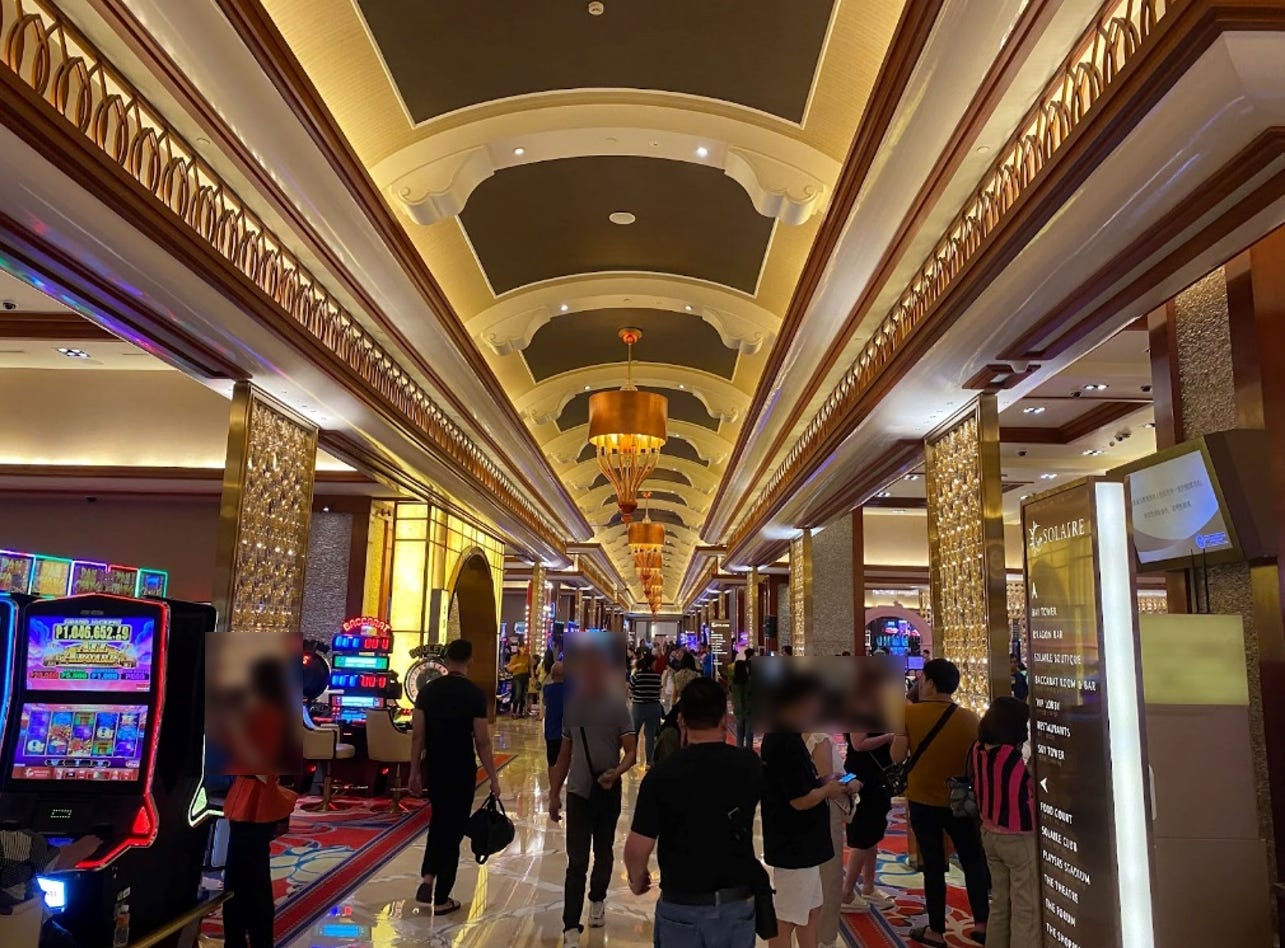Manila Trip Report – An emerging Pacific Tiger? Bloomberry Resorts (BLOOM.PS) deep dive
Casino operator bets big on continuing its winning streak in the country’s burgeoning gaming market
Initially planned around meeting a Chairman of an exciting listed company (to be covered separately), Altraman’s recent trip to Manila quickly morphed into a slew of meetings with other enterprises. His final stop was at Solaire Resort & Casino in Manila’s Entertainment City.
This piece concludes a two-part Series covering Altraman’s recent trip to Manila, sharing economic insights and highlights of meetings with three locally-listed companies. In Part 2 of this series, we provide some high level insights into the Philippines’ booming gaming industry and share highlights of Altraman’s investor meeting with the country’s largest local casino operator.
In the vibrant Philippine gaming industry, we found one casino operator particularly poised to capitalize on the growth story. With higher growth rates, less competition, and lower taxes than Macau, now may be an opportune moment for value investors looking to cash in on the gaming boom. With a strategic focus on expansion, the operator opened another casino this year in Quezon City, which looks set to be a major driver of group revenues over the few years should it follow a similar growth trajectory to the group’s flagship property in Entertainment City.
Bloomberry places its bets on the Philippines’ rapidly expanding gaming market
The Philippine gaming industry continues its meteoric rise, with gross gaming revenue (GGR) projected to grow at a 3-year CAGR of 17% from PHP 201 billion (USD 3.4 billion) in 2023 to PHP 320 billion (USD 5.44 billion) by 2026. One company has emerged as a dominant player in the market, namely Bloomberry Resorts Corporation (BLOOM.PS, “Bloomberry”; market cap of USD 1.89 billion). Founded in 2008, the Company has quickly established itself as the number one integrated resort and casino operator in the country, anchored by its flagship property, the acclaimed Solaire Resort & Casino (“Solaire”).


